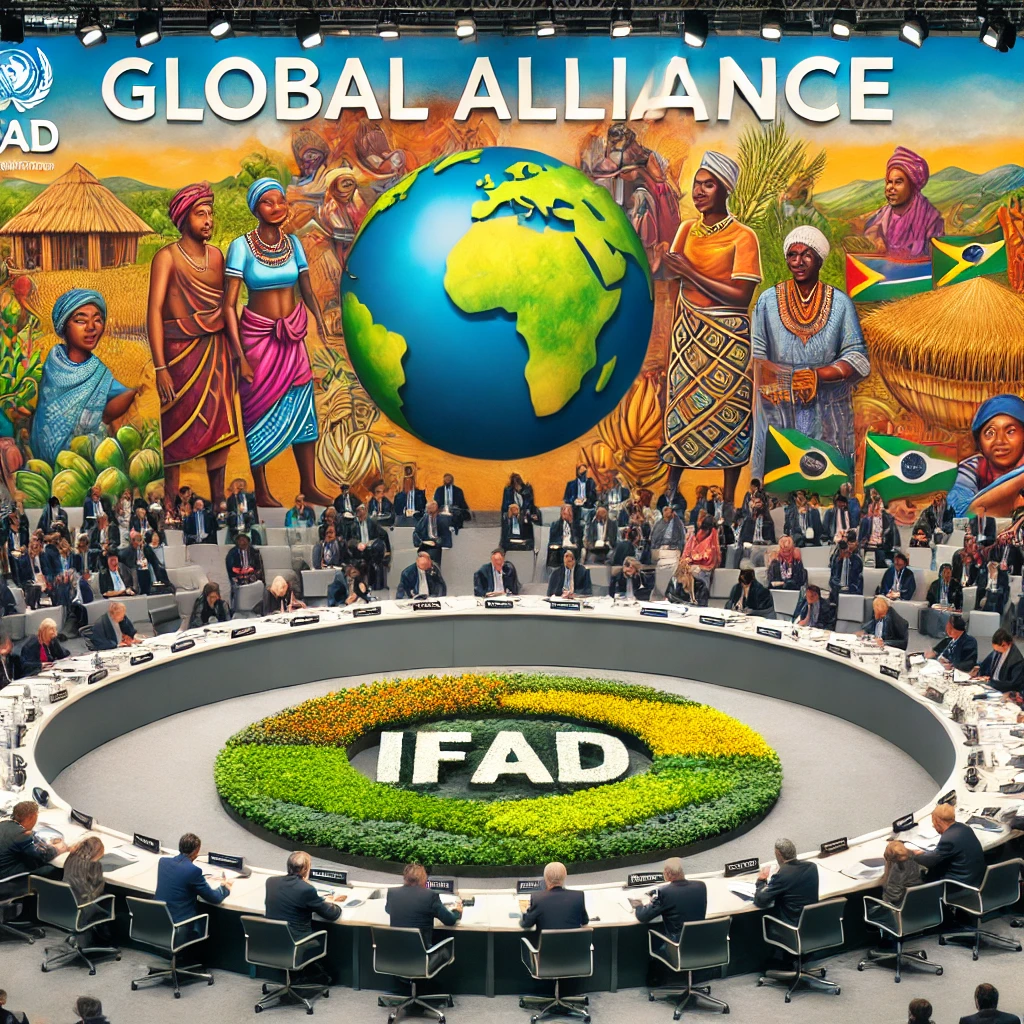Global Leaders Emphasize Rural Investments for Food Security and Economic Growth at IFAD 48th Governing Council
The 48th IFAD Governing Council concluded with a collective call to action to accelerate investments in rural communities, recognizing their central role in achieving food security, reducing poverty, and fostering global stability.

Amid growing global fragmentation and uncertainty, international leaders and financiers gathered at the 48th Governing Council of the International Fund for Agricultural Development (IFAD) to highlight the critical importance of investing in rural areas of developing countries to drive food security, economic growth, and global stability.
With nearly half of the world’s 8.2 billion people residing in rural areas of developing countries, the stakes are high. Small-scale farmers in these regions produce 70% of the food consumed in low- and middle-income countries, making rural communities pivotal for reducing poverty and feeding the world.
Alvaro Lario, President of IFAD, underscored the transformative impact of rural investments: “Stabilizing rural communities through increased productivity and economic support creates jobs, boosts incomes, and drives broader economic growth. Small farmers are business owners who need better technology, access to markets, and working capital to thrive.”
Addressing Malnutrition and Building Sustainable Food Systems
In his address, King Letsie III of Lesotho stressed the profound economic and social costs of malnutrition. Noting that African countries lose between 1.9% and 16.5% of their annual GDP due to child undernutrition, he urged nations to increase their budget allocations for nutrition to break the cycle of poverty and foster sustainable food systems.
Agriculture: A Powerful Driver of Economic Growth
Leaders emphasized the unique power of agricultural investments in driving economic development. Research indicates that economic growth in agriculture is up to three times more effective at reducing poverty than growth in other sectors—and up to 11 times more effective in sub-Saharan Africa.
Julius Maada Wonie Bio, President of Sierra Leone, highlighted the resilience of rural economies: “Despite facing the brunt of climate change and other shocks, rural communities can sustain their livelihoods and economies with the right support.”
Partnerships for Impact: Global Alliance Against Hunger and Poverty
The Council spotlighted the Global Alliance Against Hunger and Poverty as a vital initiative for collective action. Janja Lula da Silva, First Lady of Brazil, emphasized the power of partnerships: “By combining knowledge, policies, and funding, we can implement solutions that truly change realities and enhance resilience against food insecurity and poverty.”
Innovative Financing to Boost Rural Development
A major focus was on mobilizing funding through innovative financial mechanisms. Muhammad Al Jasser, President of the Islamic Development Bank, stressed the importance of collaborative efforts: “To scale impact, we must prioritize deeper collaboration, leveraging concessional financing to derisk rural investments and attract private sector participation.”
Moving Forward with Collective Commitment
The 48th IFAD Governing Council concluded with a collective call to action to accelerate investments in rural communities, recognizing their central role in achieving food security, reducing poverty, and fostering global stability.










